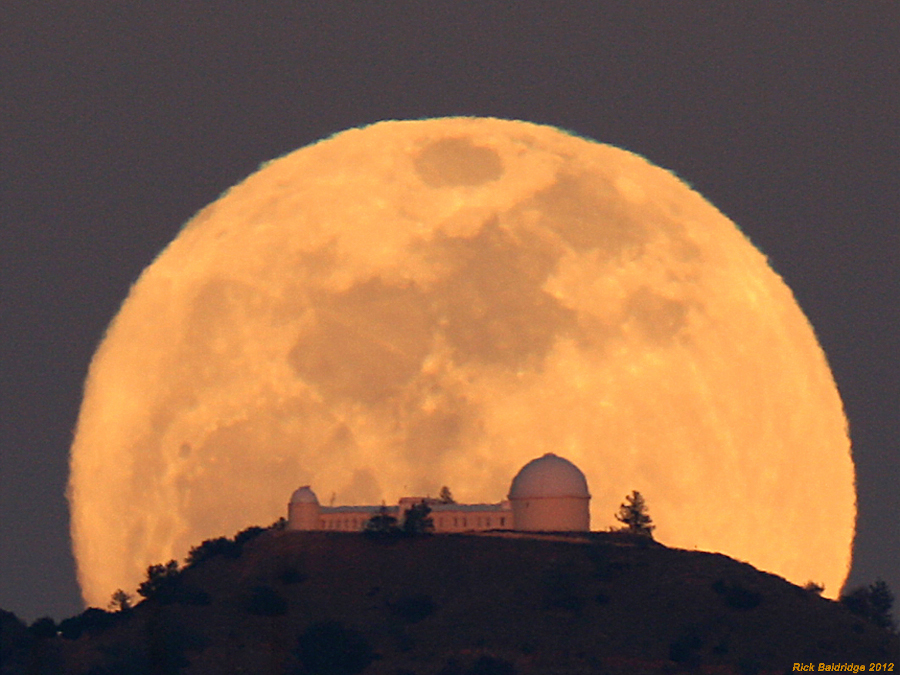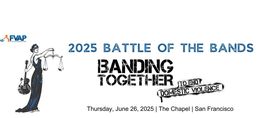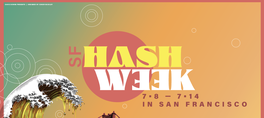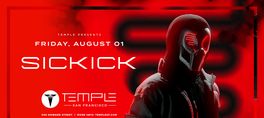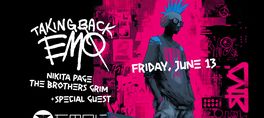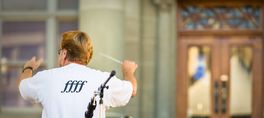Wed February 26, 2014
Free Public Talk on Exploding Stars, New Planets, Black Holes, and the Crisis at Lick Observatory
SEE EVENT DETAILS
Dr. Alex Filippenko (of the University of California, Berkeley) will give a free, illustrated, non-technical talk on:
Exploding Stars, New Planets, Black Holes, and the Crisis at Lick Observatory
in the Smithwick Theater at Foothill College, in Los Altos.
The talk is part of the Silicon Valley Astronomy Lecture Series, now in its 14th year.
Lick Observatory, the first remote mountaintop observatory in the world, has had a remarkable record of discovery spanning 126 years. It continues to be a vibrant research facility, especially for projects that require large numbers of nights on modest-size telescopes. Come hear about the exciting research areas in which Lick remains a world leader, such as the discovery and monitoring of exploding stars (which help us understand our own chemical origins as well as the ultimate fate of the universe); the search for planets orbiting other stars, especially Earth-like planets; and the study of giant black holes in the centers of nearby galaxies.
Lick is used to develop and test new instruments, such as the “adaptive optics†systems that can give telescopes on Earth clarity that matches or exceeds that of the Hubble Space Telescope. Lick is also a primary base for the University of California’s astronomy education and outreach efforts. Yet, despite all this, the UC Office of the President has decided that the university’s funding for Lick will be terminated by 2016−2018, given the financial pressures on UC. This crisis has inspired a group of Silicon Valley and Bay Area leaders to begin a serious search for alternative sources of funding to sustain this vital Bay Area institution. Come find out, from the President of the Lick Observatory Council, what Lick is all about and why we need to keep it going!
Dr. Alex Filippenko, the Richard & Rhoda Goldman Distinguished Professor in the Physical Sciences at UC Berkeley, is a world-renowned expert on some of the most dramatic fields in astronomy, including exploding stars, black holes, and cosmology. An elected member of the National Academy of Sciences, he was the only person to have been a member of both teams that revealed that the expansion of the universe is accelerating. This discovery, based in part on work done by him at Lick Observatory and elsewhere, was honored with the 2011 Nobel Prize in Physics to the teams’ leaders. Voted the “Best Professor†on the Berkeley campus a record 9 times, he was also named the 2006 Carnegie/CASE National Professor of the Year at the university level. He has produced 5 astronomy video courses with The Great Courses, coauthored an award-winning astronomy textbook, and appears in about 100 TV documentaries. In 2004, he was awarded the Carl Sagan Prize for Science Popularization.
Foothill College is just off the El Monte Road exit from Freeway 280 in Los Altos. For directions and parking information, see: http://www.foothill.edu/news/transportation.php
For a campus map, see: http://www.foothill.edu/news/maps.php
The lecture is co-sponsored by:
* NASA Ames Research Center
* The Foothill College Astronomy Program
* The SETI Institute
* The Astronomical Society of the Pacific.
We expect large crowds, so we ask people to try to arrive a little bit early to find parking. The lecture is free, but there is a charge of $3 for parking on campus and exact change is appreciated.
show less
Exploding Stars, New Planets, Black Holes, and the Crisis at Lick Observatory
in the Smithwick Theater at Foothill College, in Los Altos.
The talk is part of the Silicon Valley Astronomy Lecture Series, now in its 14th year.
Lick Observatory, the first remote mountaintop observatory in the world, has had a remarkable record of discovery spanning 126 years. It continues to be a vibrant research facility, especially for projects that require large numbers of nights on modest-size telescopes. Come hear about the exciting research areas in which Lick remains a world leader, such as the discovery and monitoring of exploding stars (which help us understand our own chemical origins as well as the ultimate fate of the universe); the search for planets orbiting other stars, especially Earth-like planets; and the study of giant black holes in the centers of nearby galaxies.
Lick is used to develop and test new instruments, such as the “adaptive optics†systems that can give telescopes on Earth clarity that matches or exceeds that of the Hubble Space Telescope. Lick is also a primary base for the University of California’s astronomy education and outreach efforts. Yet, despite all this, the UC Office of the President has decided that the university’s funding for Lick will be terminated by 2016−2018, given the financial pressures on UC. This crisis has inspired a group of Silicon Valley and Bay Area leaders to begin a serious search for alternative sources of funding to sustain this vital Bay Area institution. Come find out, from the President of the Lick Observatory Council, what Lick is all about and why we need to keep it going!
Dr. Alex Filippenko, the Richard & Rhoda Goldman Distinguished Professor in the Physical Sciences at UC Berkeley, is a world-renowned expert on some of the most dramatic fields in astronomy, including exploding stars, black holes, and cosmology. An elected member of the National Academy of Sciences, he was the only person to have been a member of both teams that revealed that the expansion of the universe is accelerating. This discovery, based in part on work done by him at Lick Observatory and elsewhere, was honored with the 2011 Nobel Prize in Physics to the teams’ leaders. Voted the “Best Professor†on the Berkeley campus a record 9 times, he was also named the 2006 Carnegie/CASE National Professor of the Year at the university level. He has produced 5 astronomy video courses with The Great Courses, coauthored an award-winning astronomy textbook, and appears in about 100 TV documentaries. In 2004, he was awarded the Carl Sagan Prize for Science Popularization.
Foothill College is just off the El Monte Road exit from Freeway 280 in Los Altos. For directions and parking information, see: http://www.foothill.edu/news/transportation.php
For a campus map, see: http://www.foothill.edu/news/maps.php
The lecture is co-sponsored by:
* NASA Ames Research Center
* The Foothill College Astronomy Program
* The SETI Institute
* The Astronomical Society of the Pacific.
We expect large crowds, so we ask people to try to arrive a little bit early to find parking. The lecture is free, but there is a charge of $3 for parking on campus and exact change is appreciated.
Dr. Alex Filippenko (of the University of California, Berkeley) will give a free, illustrated, non-technical talk on:
Exploding Stars, New Planets, Black Holes, and the Crisis at Lick Observatory
in the Smithwick Theater at Foothill College, in Los Altos.
The talk is part of the Silicon Valley Astronomy Lecture Series, now in its 14th year.
Lick Observatory, the first remote mountaintop observatory in the world, has had a remarkable record of discovery spanning 126 years. It continues to be a vibrant research facility, especially for projects that require large numbers of nights on modest-size telescopes. Come hear about the exciting research areas in which Lick remains a world leader, such as the discovery and monitoring of exploding stars (which help us understand our own chemical origins as well as the ultimate fate of the universe); the search for planets orbiting other stars, especially Earth-like planets; and the study of giant black holes in the centers of nearby galaxies.
Lick is used to develop and test new instruments, such as the “adaptive optics†systems that can give telescopes on Earth clarity that matches or exceeds that of the Hubble Space Telescope. Lick is also a primary base for the University of California’s astronomy education and outreach efforts. Yet, despite all this, the UC Office of the President has decided that the university’s funding for Lick will be terminated by 2016−2018, given the financial pressures on UC. This crisis has inspired a group of Silicon Valley and Bay Area leaders to begin a serious search for alternative sources of funding to sustain this vital Bay Area institution. Come find out, from the President of the Lick Observatory Council, what Lick is all about and why we need to keep it going!
Dr. Alex Filippenko, the Richard & Rhoda Goldman Distinguished Professor in the Physical Sciences at UC Berkeley, is a world-renowned expert on some of the most dramatic fields in astronomy, including exploding stars, black holes, and cosmology. An elected member of the National Academy of Sciences, he was the only person to have been a member of both teams that revealed that the expansion of the universe is accelerating. This discovery, based in part on work done by him at Lick Observatory and elsewhere, was honored with the 2011 Nobel Prize in Physics to the teams’ leaders. Voted the “Best Professor†on the Berkeley campus a record 9 times, he was also named the 2006 Carnegie/CASE National Professor of the Year at the university level. He has produced 5 astronomy video courses with The Great Courses, coauthored an award-winning astronomy textbook, and appears in about 100 TV documentaries. In 2004, he was awarded the Carl Sagan Prize for Science Popularization.
Foothill College is just off the El Monte Road exit from Freeway 280 in Los Altos. For directions and parking information, see: http://www.foothill.edu/news/transportation.php
For a campus map, see: http://www.foothill.edu/news/maps.php
The lecture is co-sponsored by:
* NASA Ames Research Center
* The Foothill College Astronomy Program
* The SETI Institute
* The Astronomical Society of the Pacific.
We expect large crowds, so we ask people to try to arrive a little bit early to find parking. The lecture is free, but there is a charge of $3 for parking on campus and exact change is appreciated.
read more
Exploding Stars, New Planets, Black Holes, and the Crisis at Lick Observatory
in the Smithwick Theater at Foothill College, in Los Altos.
The talk is part of the Silicon Valley Astronomy Lecture Series, now in its 14th year.
Lick Observatory, the first remote mountaintop observatory in the world, has had a remarkable record of discovery spanning 126 years. It continues to be a vibrant research facility, especially for projects that require large numbers of nights on modest-size telescopes. Come hear about the exciting research areas in which Lick remains a world leader, such as the discovery and monitoring of exploding stars (which help us understand our own chemical origins as well as the ultimate fate of the universe); the search for planets orbiting other stars, especially Earth-like planets; and the study of giant black holes in the centers of nearby galaxies.
Lick is used to develop and test new instruments, such as the “adaptive optics†systems that can give telescopes on Earth clarity that matches or exceeds that of the Hubble Space Telescope. Lick is also a primary base for the University of California’s astronomy education and outreach efforts. Yet, despite all this, the UC Office of the President has decided that the university’s funding for Lick will be terminated by 2016−2018, given the financial pressures on UC. This crisis has inspired a group of Silicon Valley and Bay Area leaders to begin a serious search for alternative sources of funding to sustain this vital Bay Area institution. Come find out, from the President of the Lick Observatory Council, what Lick is all about and why we need to keep it going!
Dr. Alex Filippenko, the Richard & Rhoda Goldman Distinguished Professor in the Physical Sciences at UC Berkeley, is a world-renowned expert on some of the most dramatic fields in astronomy, including exploding stars, black holes, and cosmology. An elected member of the National Academy of Sciences, he was the only person to have been a member of both teams that revealed that the expansion of the universe is accelerating. This discovery, based in part on work done by him at Lick Observatory and elsewhere, was honored with the 2011 Nobel Prize in Physics to the teams’ leaders. Voted the “Best Professor†on the Berkeley campus a record 9 times, he was also named the 2006 Carnegie/CASE National Professor of the Year at the university level. He has produced 5 astronomy video courses with The Great Courses, coauthored an award-winning astronomy textbook, and appears in about 100 TV documentaries. In 2004, he was awarded the Carl Sagan Prize for Science Popularization.
Foothill College is just off the El Monte Road exit from Freeway 280 in Los Altos. For directions and parking information, see: http://www.foothill.edu/news/transportation.php
For a campus map, see: http://www.foothill.edu/news/maps.php
The lecture is co-sponsored by:
* NASA Ames Research Center
* The Foothill College Astronomy Program
* The SETI Institute
* The Astronomical Society of the Pacific.
We expect large crowds, so we ask people to try to arrive a little bit early to find parking. The lecture is free, but there is a charge of $3 for parking on campus and exact change is appreciated.
show less
Date/Times:
12345 El Monte Road, Los Altos Hills, CA 94022
The Best Events
Every Week in Your Inbox
From Our Sponsors
UPCOMING EVENTS
Great suggestion! We'll be in touch.
Event reviewed successfully.
